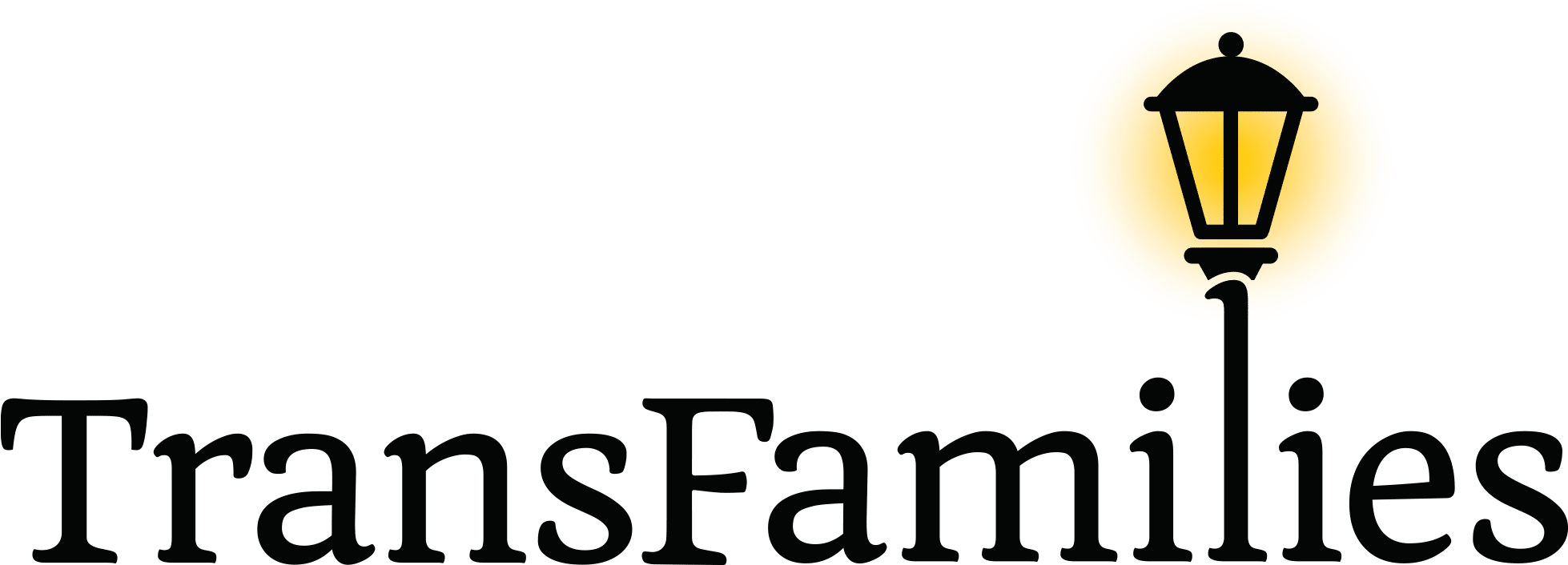Navigating Spirituality With Founder Aidan Key

Founder Aidan Key recently delivered a sermon at Kitsap Unitarian Universalist Fellowship in Bremerton, WA. Trans Families sat down with Aidan to learn how being trans has affected his religious experiences, how spiritual parents that he has met over the years have welcomed their transgender/nonbinary children, and how trans/nonbinary people can find spiritual community.
Religion, of course, isn’t a part of everyone’s journey, but it is part of yours. As a child, do you remember any implicit or explicit messages about transgender people from your church community?
Growing up, I don’t remember my faith community talking much about LGBTQ+ people, just hints here and there. But, those hints always suggested that being LGBTQ+ wasn’t desirable – I knew that I was being told it was bad to be LGBTQ+. I’m glad that I have continued sticking to my faith and holding out hope, because I have learned that there are faith communities who are happy and honored to embrace us.
In your sermon, you mention that your relationship with religion has been “complicated.” Tell us more about that.
Most of my youth, from when I was 7 until I was 17, I was in church community. During that time, I thought a lot about the type of human I wanted to be. Even to this day, I embrace the values I found in my faith at that time. While I was finding my values during that time, I was also beginning to understand that the faith community expected a path of me that I was realizing I was going to stray from. This incongruence was challenging – I wasn’t sure how I could embrace these principles that were important to me while trying to understand if the faith community felt like they could embrace me or not. Now that I’m older, I’m thankful to know that there are faith communities that embrace transgender/nonbinary people – that embrace me.
Thinking about your journey with respect to spirituality, what was it like to be the one delivering words to a congregation?
No way could my younger self have imagined standing at a pulpit! When I received the invitation from Kitsap Unitarian Universalist Fellowship, I felt intimidated, a little scared – I knew this was going to be very vulnerable. When I arrived at the church, my heart was pounding as I took in the space – the sanctuary with its pews and hymnals, the person playing the piano. I started having emotional, visceral memories that were good and bad. But, I felt like this was a moment for me to not only teach people, but to heal. Every step of the way I was welcomed with open arms, from the folks that opened up their home to me, to trans/nonbinary members of the community that showed up just to show support, to the respect that everyone showed me, I felt supported and cared for. When I was a young person I would never have thought that this was possible, but there I was – living and breathing it.
Often, people can see spiritual communities as totally separate from LGBTQ+ communities. Do you see these two communities as separate groups?
When I was younger, I could never have imagined how much overlap there is between the LGBTQ+ and spiritual communities. There are LGBTQ+, trans, nonbinary, gender-diverse people in faith communities as congregates, pastors, rabbis – everyone. Of course there are going to be LGBTQ+ people who are not spiritual, and there are going to be spiritual communities and people who are hostile to LGBTQ+ people, but there is so much more overlap between these groups than folks realize. There has been so much positive change in how these groups relate to each other in my lifetime, and it’s because there are LGBTQ+ people across the country who find value in spirituality and there are spiritual communities who want to welcome LGBTQ+ people. There has been pain, but there has also been profound positive change, too.
You’ve talked to a lot of parents/caregivers with trans/nonbinary children over the years. Have you noticed any general themes in those conversations?
I’ve talked to so many parents with transgender/nonbinary children who bring up faith communities – if not their own, then ones of their in-laws, extended family, etc. Of course we talk about strategies for families to bring their faith communities along to help them understand trans/nonbinary people, and that’s a challenging thing. It requires parents to dig deeper than they ever thought they had to, and it requires them to prepare for the worst while hoping for the best. But, if the worst happens, if their faith communities cannot get on board, families don’t have to discard their faith just because one faith community disregarded them.
For families for whom God is part of their belief system, they often refer to the expression “God doesn’t make mistakes,” and wonder how to reconcile that. But, many parents that I have spoken to who are wrestling with this come to a realization – “if God doesn’t make mistakes, then my child’s gender isn’t a mistake. This is my chance to step up to support my family – this is my journey, too.” I’m thankful for how vulnerable parents and caregivers have been with me over the years, because then I get to share their stories with others who are struggling with similar questions. I don’t ever tell parents what to do, but I’m always so happy to show them what other people have done.
What’s your message for spiritual parents with transgender/nonbinary children?
Your journey with spirituality, with your higher power, is yours and yours alone. Sometimes, when people use religion or spirituality to argue against LGBTQ+ people, it manifests as coming from a place of concern. I often tell these folks “thank you for your concern about my eternal soul. I see where you’re coming from and I see your intent, I know you’re doing this out of love. But, I am also concerned about my eternal soul, and, I know for a fact that if I died tomorrow I could stand in front of my maker and say, “I feel like I was doing your work, how did I do?” And, I feel 100% confident that what I would hear is “job well done.”
Navigating spirituality for transgender/nonbinary people and their families can be challenging. They may experience trauma and rejection, and it can be ugly. But, the families that I have seen who have coped the best are those that embrace the fact that they have been given a journey to understand their kid. For families on this journey, who want to do the best by their child, when the world fights back, they’ve got to grab a hold of their journey, stick with their family, and, in the midst of any harshness or challenges, know that by supporting their child, they are doing the most important work there is. There are faith communities that embrace families with LGBTQ+ children. And, again, if faith communities reject us, we don’t have to reject our faith.
